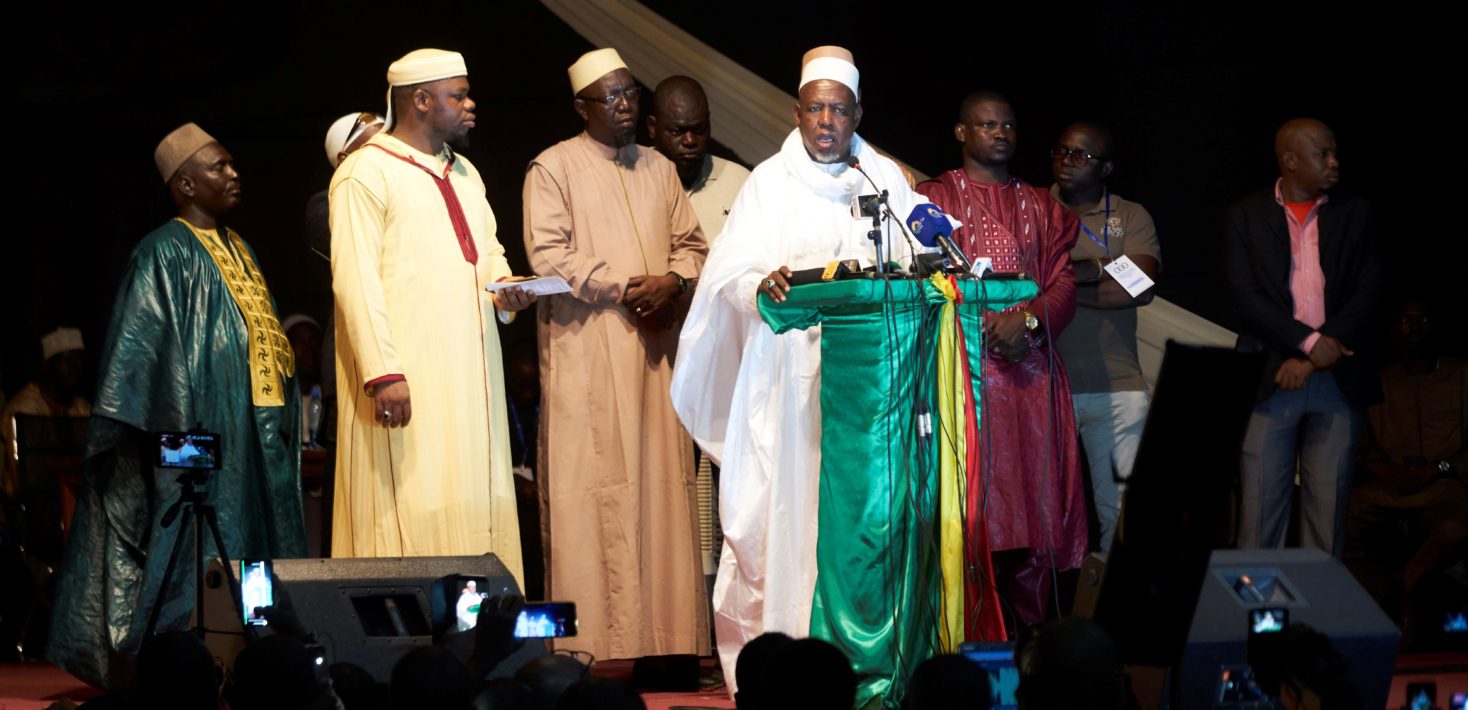Malian authorities must immediately release Youssouf Daba Diawara and 11 other opposition politicians who remain arbitrarily detained solely for exercise of their human rights amid escalating crackdown on dissent, said Amnesty International.
On 12 July, Youssouf Daba Diawara, former coordinator of the Coordination of Movements, Friends and Sympathizers of Imam Mahmoud Dicko (CMAS), an association dissolved by the transitional authorities in March 2024, was forced out of his car in Bamako by armed men and taken to the Criminal Investigations Brigade of the Gendarmerie. Brought before a judge on 15 July, he was charged with “opposing legitimate authority” for participating in an unauthorized protest on 7 June. His trial is due to take place on 3 October.
“We denounce the arbitrary detention of Youssouf Daba Diawara and other political leaders by the Malian authorities. Despite the lifting of the suspension of political activities on 10 July, there is a growing crackdown on human rights including the rights to freedom of expression, peaceful assembly and association. The Malian authorities must immediately end their judicial harassment of opposition members and dissenting voices,” said Samira Daoud, Amnesty International’s Regional Director for West and Central Africa.
Escalating crackdown on human rights
Since the beginning of the year, the Malian authorities have dissolved several political groups, including the CMAS, on 6 March. The Synergy of Actions for Mali, a coalition of some thirty opposition parties and formations of which the CMAS was a member, was also dissolved on 17 April by the government.
On 20 June, 11 opposition leaders were arbitrarily arrested by the gendarmerie at the home of Moustapha Dicko, vice-president of Alliance of Democracy in Mali-African Party for Solidarity and Justice (ADEMA-PASJ) and charged with “plotting against state authority” and “opposing legitimate authority”. All of them were remanded into custody in various detention centers located in Bamako, Kéniéroba and Dioila.
We call on the authorities to immediately and unconditionally release Youssouf Daba Diawara and the 11 other politicians.
Samira Daoud, Amnesty International’s Regional Director for West and Central Africa
The 11 detained politicians and their political parties had signed a public letter, on 31 March, in which they called on the military authorities “to create the conditions for a quick and inclusive consultation, that would set up an institutional architecture, to organize, as quickly as possible, presidential elections”.
Between 10 April and 10 July 2024, the Malian authorities had suspended political parties’ activities and associations’ activities of political nature and prohibited any coverage by the media of political activities within the country.
“We call on the authorities to immediately and unconditionally release Youssouf Daba Diawara and the 11 other politicians detained solely for the peaceful exercise of their human rights and drop all the charges against them. Authorities must respect and protect the rights to freedom of expression, association and to participate in public affairs,” Samira Daoud said.

Background
Youssouf Daba Diawara was charged with “opposing legitimate authority” for participating in an unauthorized protest on 7 June against the electric outages and inflation organized by the Synergy of Actions for Mali.
On 8 June, Yeri Bocoum, a journalist that live-covered the protests, was abducted from his home in Kati by men in civilian clothes and taken to an unknown destination. He was freed on 28 June.
Mali’s transition began in September 2020 following a coup d’état that toppled the democratically elected government of President Ibrahim Boubacar Keita. The transition was initially slated to last 18 months, after the investiture of the transitional president on 25 September 2020. This transitional period was extended in December 2021 by the Malian authorities following recommendations of a National Consultation in December 2021, a decision that created tensions with the Economic Community of West African States (ECOWAS). In July 2022, and after six months of political and economic sanctions against Mali, ECOWAS endorsed an extension of the political transition, for an additional two years, which ended on 26 March 2024.


